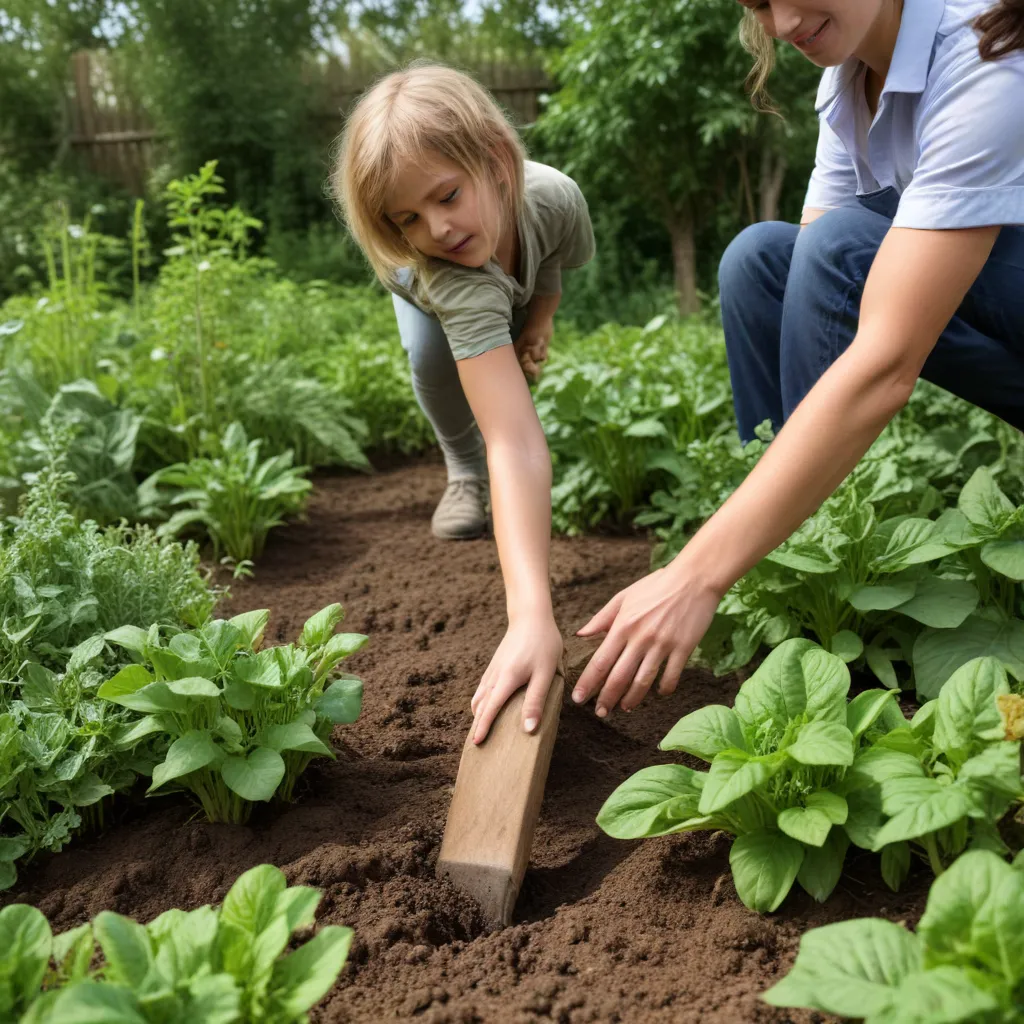
Cultivating Calm: The Therapeutic Benefits of Tending to Our Organic Gardens
Amidst the whirlwind of modern life, the promise of refuge and rejuvenation can be found in the most unlikely of places – our own backyard gardens. As hospitality and wine experts at the Wine Garden Inn, we have long championed the profound, yet often overlooked, healing powers of tending to an organic plot. Far more than just a means of growing delectable produce, the act of gardening has been shown to deliver a host of mental, physical, and spiritual benefits that can breathe new life into even the most weary souls.
The Impact of Nature on Mental Well-being
It’s no secret that spending time in nature can have a profoundly soothing effect on the mind and body. Studies have consistently demonstrated the stress-reducing properties of simply observing natural scenes, whether it’s gazing upon a lush hedge or contemplating a sculpture garden. In one pioneering study, patients with post-operative wards who had views of plants and trees experienced improved mood, reduced analgesic use, fewer surgical complications, and shorter hospital stays compared to those with less verdant vistas.
But the therapeutic magic of nature doesn’t stop at passive observation. The very act of gardening, of nurturing plants with our own hands, has been found to offer even greater mental health benefits. Researchers have discovered that gardening activities like weeding, digging, and watering can induce a state of mindfulness and sensory engagement that helps alleviate symptoms of depression, anxiety, and stress. The rhythmic, repetitive motions of tending to our plots have a meditative quality, allowing us to fully inhabit the present moment and, in the process, quiet the incessant chatter of the mind.
The Healing Power of Soil and Plants
Beyond the psychological dividends, the very substances that make up a thriving organic garden – the soil, the plants, the microbes – possess inherent therapeutic properties that can directly impact our physical and emotional well-being. The rich, loamy soil beneath our feet is teeming with a diverse array of beneficial microorganisms that, when absorbed through skin contact or ingestion of homegrown produce, can nurture the delicate balance of our own gut microbiome. This symbiotic relationship has been linked to enhanced immune function, improved mood, and even a reduced risk of certain diseases.
The plants themselves are equally potent sources of healing. Many edible varieties contain phytochemicals – naturally occurring compounds that have been shown to possess anti-inflammatory, antioxidant, and even anti-cancer properties. Consuming these nutrient-dense vegetables and herbs, free from the harmful effects of synthetic pesticides, can bolster our physical and mental well-being in ways that store-bought produce simply cannot match.
For those seeking a more intentional path to wellness, the field of horticultural therapy offers a structured approach to leveraging the restorative power of gardening. Trained professionals guide participants through a variety of gardening activities tailored to address specific physical, cognitive, and emotional needs, whether it’s improving hand-eye coordination, fostering a sense of purpose, or cultivating mindfulness.
Cultivating a Restorative Outdoor Space
Of course, the therapeutic benefits of gardening don’t have to be confined to a formal therapy setting. By thoughtfully designing our own personal restorative gardens, we can create private oases that nourish both body and soul. Incorporating elements like meandering paths, water features, and fragrant plantings can encourage a sense of calm and wonder, while the inclusion of edible crops satisfies our innate desire to nurture and sustain life.
The key is to curate a space that engages all five senses – sight, sound, touch, smell, and taste. Perhaps a bubbling fountain provides a soothing auditory backdrop, while a bed of lavender beckons us to pause and breathe deeply. Incorporating meditative features, such as a designated meditation circle or a labyrinth, can further deepen our connection to the natural world and foster a profound sense of inner peace.
The Nutritional Benefits of Homegrown Produce
Of course, the advantages of tending to an organic garden extend beyond mental and emotional well-being. The fresh, nutrient-dense produce that we harvest from our plots can also have a profoundly positive impact on our physical health. Studies have shown that organically grown fruits and vegetables often contain higher levels of beneficial phytochemicals and antioxidants compared to their conventionally grown counterparts, which can be compromised by the use of synthetic pesticides and fertilizers.
By cultivating our own organic gardens, we not only reduce our exposure to these harmful chemicals but also establish a more intimate relationship with the food we consume. This, in turn, can foster healthier eating habits and a greater appreciation for the seasonal rhythms of nature. Rather than relying on the ubiquitous, often flavorless offerings of the grocery store, we can savor the vibrant, just-harvested flavors of our homegrown tomatoes, greens, and herbs, while enjoying the peace of mind that comes with knowing the provenance of our meals.
Whether you’re a seasoned gardener or a complete novice, the therapeutic benefits of tending to an organic plot are well within reach. By__carving out a space for nature to thrive, we not only nourish our bodies but also nurture our souls, finding refuge from the stresses of modern life in the simple act of cultivating calm. As you wander through the lush, bountiful gardens of the Wine Garden Inn, we hope you’ll be inspired to create your own restorative oasis, where the healing power of the earth can work its magic on both mind and body.
